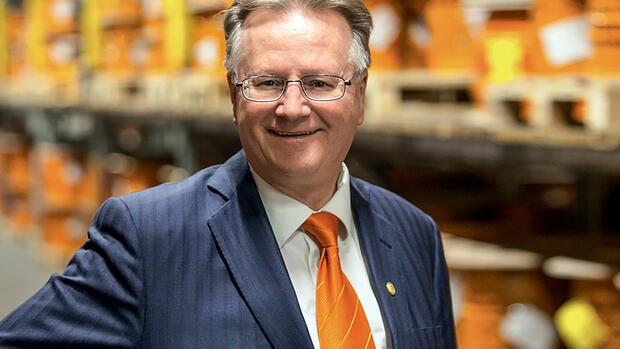The lawyer and business economist from the second generation of the entrepreneurial family can look back on almost three decades of experience in the Indian business.
(Photo: Frederik Laux/PR)
Stuttgart Federal Minister of Economics Robert Habeck (Greens) is leaving for a trip to India lasting several days this Wednesday. Above all, closer economic cooperation between the two countries is on the agenda.
The Stuttgart-based cable manufacturer Lapp discovered India earlier than other medium-sized companies. As early as 1996, the company set up its own production facility in Bangalore, southern India. With more than 5,000 employees worldwide and sales of EUR 1.86 billion last year, Lapp is one of the world’s leading suppliers of industrial cables, connections and data and fiber optic cables.
Co-owner Andreas Lapp also has close ties to the country. He has been Honorary Consul of India since 2000. Last year, the 67-year-old handed over management of the company to his nephew Matthias Lapp. In an interview, he talks about his experiences from several decades of doing business in India.
Read the full interview here:
Mr. Lapp, you have been active in India for around three decades and now have 800 employees in two plants and ten logistics branches. How do you rate India?
India now has more people than China, geopolitical importance is increasing, and it is a Western-style democracy. By 2050, India will be among the five largest economies in the world.
What does a medium-sized German company have to consider when embarking on this adventure?
He has to go to India and start, there’s no point in talking about it.
And what does he have to pay attention to above all?
Investors must always decide whether they want to work with a local partner or go it alone. Things can sometimes go faster with a partner, but Indian companies often work in conglomerates and have different decision-making processes. It can get difficult when cultures collide. If he tries it alone, he has to calculate more time for approval processes, among other things.
More about India
What should the entrepreneur never do?
He should never pay bribes. Better not to start with that. It also works without.
Did you really stick through that?
We never paid a penny in bribes. It is much more important as an entrepreneur to talk to the authorities, customers and suppliers on site.
You recently handed over operational management to your nephew. How often have you been to India during your playing days?
Two to three times a year. Keeping your eyes open and personal presence are important. You have to talk to your partners on an equal footing. Since the country is close to my heart, I have remained Chairman of Lapp India and am still taking care of it in coordination with my nephew.
What is the difference with China?
Coming to India and expecting a factory to be built in a year doesn’t work. You have to bring time. It’s a democracy. Unlike in China, areas are not cleared with bulldozers, people are simply relocated when a large investor comes. It may take a while, but usually you get all the permits.
“You can’t do something in South India and think it will work the same way in the North”
And then everything is fine?
My experience is that you then have stable conditions on site during ongoing operations.
What else to consider?
India is a multi-ethnic country with many languages, like Europe. You can’t do something in a state in South India and think it will work the same way in North India. But that’s no different in Europe. If you invest in Sicily as an entrepreneur, it also works differently than in Norway.
For whom do you produce in India?
90 percent of our products remain on the Indian market. Only ten percent are for other markets.
Is the caste system a problem for a German entrepreneur?
In our plants, there is always the same salary for the same work.
But not the same food, right?
Out of consideration for the individual groups, there is vegetarian cuisine in the canteen.
Mr. Lapp, thank you very much for the interview.
More: German companies are betting on the India boom
